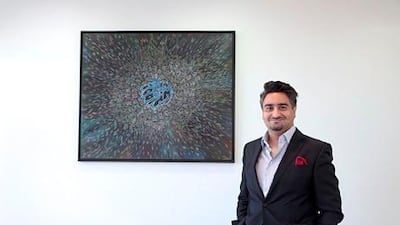Range Hospitality Group, the developer of Al Rawdatein Residences in Karbala, plans to hand over properties to some buyers in the final quarter of this year.
The US$150 million (Dh550.9m) five-star hotel and residential project is targeted at pilgrims to the holy city in central Iraq. The Dubai-based developer has planned 624 units, of which 40 per cent, or 249 units, will be handed over to buyers.
The company would not say how many of the 249 units have been sold.
"We have sold enough to fund the next phase of the project," said Munaf Ali, the chief executive and co-founder of Range Hospitality Group and Range Developments. The companies are owned by Range Holdings.
While the majority of the buyers are retail investors, "we do get bulk buyers who buy multiple units for investment purposes", he added.
The project would work on a timeshare basis. Up to 75 per cent of the units comprise serviced residences, which can be rented out to tourists. The sizes vary from 35.9 square metres for a studio to a two-bedroom corner suite of 119.8 sq metres.
Clients can take fractional ownership of a fully furnished unit for a minimum of one week a year for up to 50 years as part of the timeshare option.
Fractional ownership for a studio can be bought for $6,325 for a week in the low season, for which a 45 per cent payment must be made upfront and the rest on completion.
The price of a studio starts at $500,000.
In Karbala, tourist arrivals are categorised as - low, medium, peak and super peak depending on the religious festivities.
The city welcomes 10 million to 20 million pilgrims a year, with the arrivals spread throughout the year unlike Mecca and Medina, Mr Ali said.
The units can be given up for rent to Shaza Hotels, a Dubai hotel operator, which will run Al Rawdatein Residences.
According to Mr Ali, hotels in Karbala charge $150 per bed per person.
Based on this price, "a buyer [in Al Rawdatein Residences] can get up to 20 per cent return on investment every year," he said.
Muslim buyers form a majority, but about 10 per cent of the clients are non-Muslims. These include buyers from the Arabian Gulf, India, Pakistan, Bangladesh, Europe and North America.
The company was also in talks for developments in Baghdad and another in Najaf, another holy city in Iraq, as well as scouting for land in Mecca and Medina.
